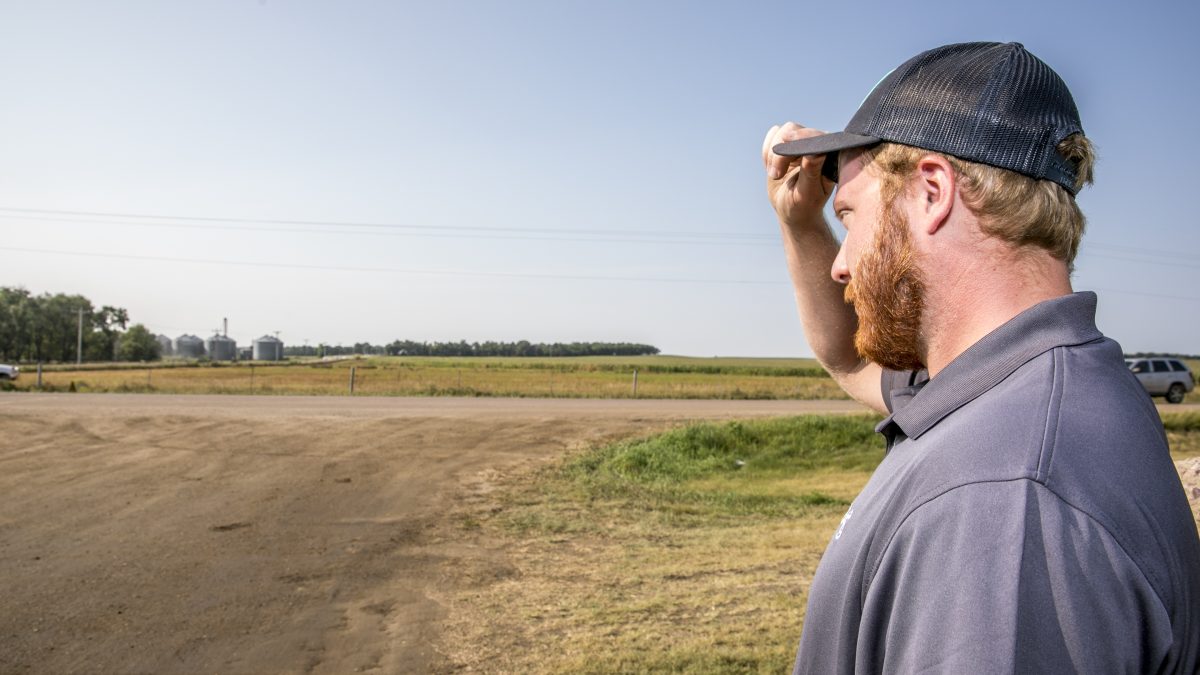Why Are We Talking About Mental Health All the Time Now?
TOPICS
Mental Health MonthGuest Author
Special Contributor to FB.org

photo credit: AFBF
Guest Author
Special Contributor to FB.org
By Jessica Cabrera
Isn’t it interesting how things change over time? And how certain issues become mainstream?
We used to play outside from morning to night, day after day, without a second thought, and now as many as 60 million people in the U.S. are affected by seasonal allergies and struggle to participate in normal daily activities outdoors. My son is allergic to grass! How did that happen?
We used to eat PB&J sandwiches and peanut butter crackers without a thought, but now I ask the person sitting beside me on an airplane if it’s okay for me to eat peanut M&M’s (my guilty travel pleasure!) because I don’t want to unintentionally instigate an anaphylaxis attack while flying at over 30,000 feet.
And anyone over the age of 40 can attest that “screen time” was not a thing when we were growing up. Now, handheld electronics offer access to our primary source of information – the internet. I’ll admit, I would be in serious trouble if I didn’t have GPS (don’t judge me!). How did technology become so ubiquitous so fast?
No farmer should feel that they have to handle the troubles of this world alone. We are stronger together.
What about mental health? No one talked about mental health wellness when I was growing up. I can remember one of my dad’s best friends dying by suicide when I was little, and even after that it wasn’t talked about. It was taboo and I don’t think people around me even knew how to articulate the issue. But now, the topic of mental health is discussed in the workplace, in schools, among friends and in the media. Why the change?
Believe it or not, May was established as Mental Health Month in 1949 to increase awareness of the importance of mental health and wellness in Americans’ lives. It’s not a new idea that mental health is essential for a person’s overall health, so this topic is not new to the scene. But why has the topic become so popular?
People are dying.
I’m sorry to be so blunt, but that’s what it comes down to. We are losing our friends, family, neighbors, co-workers, classmates and teammates to suicide, and we want it to stop. It doesn’t discriminate. It can affect anyone, and most of the time it is doing its damage in the shadows.
This is especially true in the agriculture community. The suicide rate among farmers and ranchers during the farm crisis of the 1980s increased dramatically, which called attention to this issue among farm communities. Fast forward nearly 40 years and reports indicate that farmers die by suicide at a rate of two to five times higher than the national average. This is a crippling comparison, and it deserves attention!
I posit that mental health is being talked about so much now because we’ve learned that giving a voice to this issue saves lives. Too many people are struggling and too many have lost their lives. As the years pass, more and more of us have a personal connection to someone who has died by suicide, and we are tired of it. We have to do something!
The American Farm Bureau’s Farm State of Mind campaign is our way of letting farmers and ranchers know that it is OK to not be OK, they are not alone, and there are resources to help. It is how we work to equip family members, friends, neighbors and those who work in the agriculture industry with the information and training they need to recognize warning signs and to boldly start a conversation. Through this campaign, farmers and ranchers are able to tell their stories of struggle, victory and advocacy. No farmer should feel that they have to handle the troubles of this world alone. We are stronger together.
Our most recent research poll results indicate that farmers and people in rural areas are more comfortable talking about stress and mental health challenges with others than they were in 2019. In an industry that prides itself on pulling yourself up by your bootstraps and never letting anyone know that you are hurting, this is a sign of progress. The stressors have not lessened, and the challenges persist, but it is time for farmers and ranchers to know that it’s OK to not be OK and that getting help is not a sign of weakness, but a sign of strength.
So, let’s keep talking about it! Embrace the change. It’s making a difference. Little by little, this will save lives.
Jessica Cabrera is managing director of member engagement at the American Farm Bureau Federation, and is the program lead for the Farm State of Mind campaign.